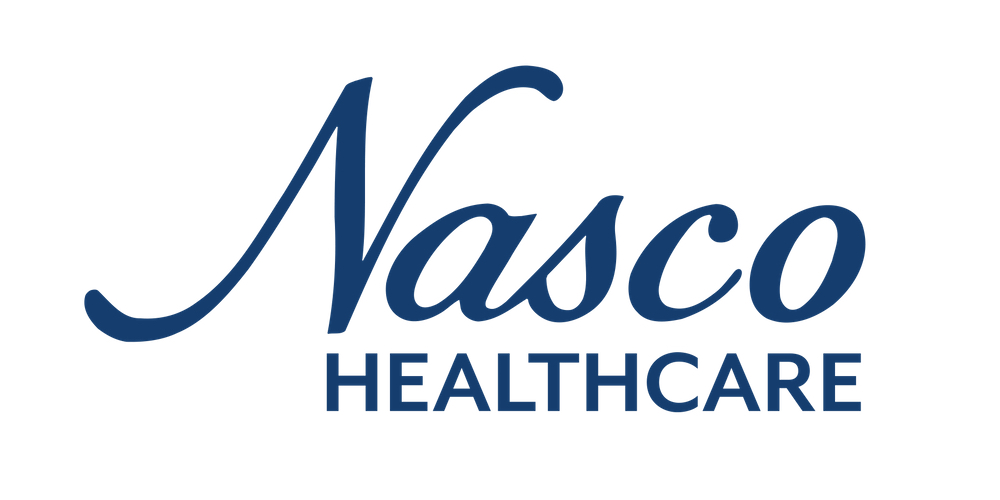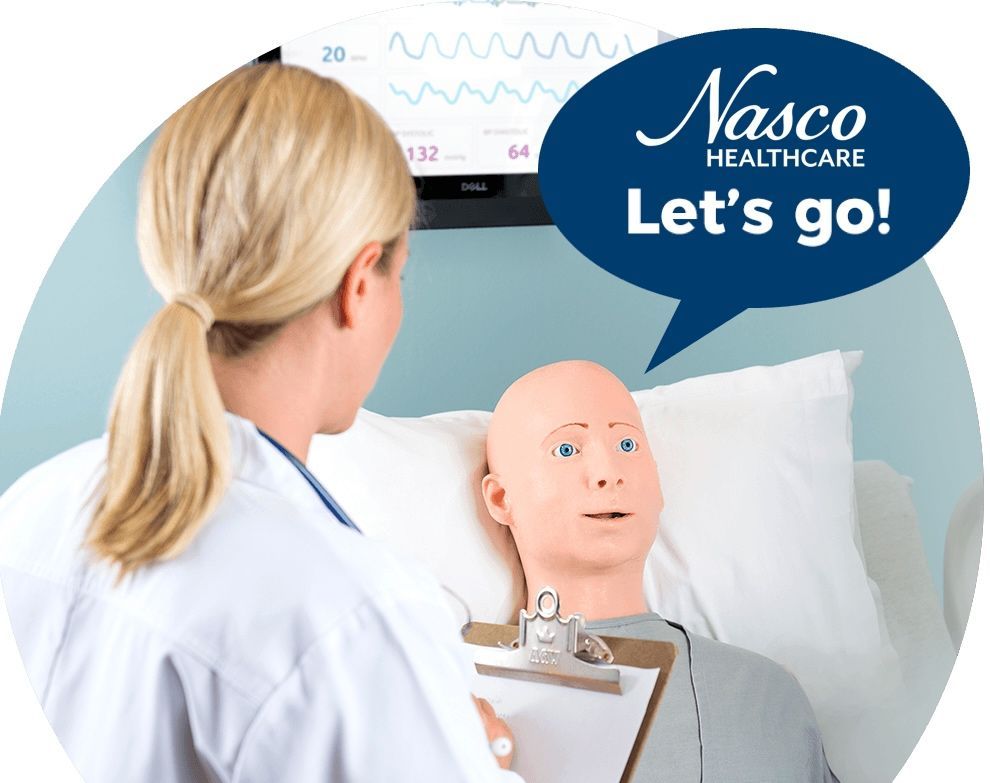2023 was the year of Artificial Intelligence, or AI, which has and will continue to impact every single industry in the world, including medical simulation. In this article, we recap all the clinical simulation articles discussing the injection of AI, covering topics from getting started with ChatGPT, virtual patient tools leveraging AI from Lumeto, SimConverse, Nasco Healthcare, and PCS, exploring the potential and warnings of such tools to improve clinical education and training, and more. Reviewing this 2023 AI content from HealthySimulation.com will help healthcare simulation programs improve their understanding and utilization of AI in 2024 and beyond.
Why Healthcare Needs AI Now: Use Cases and Examples (Jan Beger – Senior Director Digital Ecosystem at GE HealthCare): Healthcare needs AI because it needs the human touch, meaning that healthcare can benefit greatly from the combination of AI technologies and human expertise and empathy. AI in healthcare has the potential to automate routine and mundane tasks, which can free up valuable time. Artificial Intelligence (AI) allows healthcare providers to spend more time building relationships with patients and delivering the human touch that is essential in healthcare. Which also is often the most rewarding and impactful part of their work. Learning Objectives:
- Discuss interesting facts about global healthcare problems and challenges.
- Demonstrate AI use cases and examples focused on Healthcare outcomes.
- Showcase ways for professional development towards and AI-powered future at clinical workplaces.
Revolutionizing Healthcare Simulation: ChatGPT’s Impact and Implications (Melissa Jo Tully): The advent of Large Language Models (LLMs), such as ChatGPT, LLama 2, Bard, Aleph Alpha, and Claude, has brought cutting-edge AI tools that have sent ripples of innovation across a multitude of industries, offering newfound potential for transforming traditional practices. One such domain experiencing a significant impact is healthcare simulation education. This advanced and easily accessible AI tool has the potential to revolutionize the way healthcare simulations are designed and utilized, providing both opportunities and challenges. This HealthySimulation.com article by Melissa Tulley, MSN, RN, CHSE, will explore AI-generated simulation to analyze the strengths and weaknesses of LLMs in the context of healthcare simulation. Additionally, guidance on how to leverage LLMs as a valuable simulation resource while addressing concerns related to accuracy, relevance, and structural aspects will be discussed.
ChatGPT and Other Generative AI Considerations for Healthcare Simulation (Jill Sanko): ChatGPT and other generative AI tools have serious potential to impact Healthcare Simulation. Recently the headlines have been touting some advances in generative Artificial Intelligence (AI), ChatGPT and Bard, which are two competing brands of this technology. For those less familiar, ChatGPT and Bard are AI chatbots. ChatGPT is created by Open AI and Bard is Google’s equivalent. ChatGPT has been out since November of 2022, while Bard was just released in March 2023. Already these technological wonders are making headlines and quickly ‘learning’ and changing; ChatGPT 4 has just launched. With this version, the developers tested its ability to take standardized tests (the SAT, a number of AP history exams, the BAR, and several others); spoiler alert ChatGPT did pretty darn well on these exams, better than 85% of humans in some cases. AI’s performance on these exams leads one to wonder how ChatGPT would perform on the CHSE or CHSOS exams? This HealthySimulation.com article by Dr. Jill Sanko will explore ChatGPT in the context of healthcare simulation. (Editor’s Note: Are you utilizing ChatGPT or other AI systems in interesting ways with Healthcare Simulation? Email us, we want to know!)
Nasco Healthcare Simulator Alex Trains Clinical Communication with AI (Teresa Gore, PhD, DNP, APRN, FNP-BC, CHSE-A, FSSH, FAAN): Nasco Healthcare is on the leading edge to train healthcare professionals in clinical simulation, adding artificial intelligence (AI) clinical communication simulators to their product line. ALEX and AXEL are two new Nasco healthcare simulators for learners to practice clinical communication through AI during an in-person simulation. This HealthySimulation.com article will review Nasco’s ALEX and AXEL simulators and how they can help your learners improve their communication skills.
Increase Clinical Training Capacity with SimConverse’s Large-Scale Communication Platform (Teresa Gore, PhD, DNP, APRN, FNP-BC, CHSE-A, FSSH, FAAN): SimConverse increases training capacity and enables large scale communication skills training to be delivered asynchronously. This is done for all healthcare professionals by leveraging the SimConverse generative artificial intelligence (AI) to deliver virtual simulation experiences remotely. Communication is the foundation of every healthcare interaction with patients, their families, and healthcare colleagues. Without accessible, diverse, inclusive, and flexible communication skills training, educators continue to grapple with getting their learners to reach competency. SimConverse is used for all this, from simple to incredibly complex communication skills training like health assessments, de-escalation, delivery of bad news, and end of life care. SimConverse allows educators to conduct large-scale competency-based skills training with a fully customizable grading rubric and automated feedback that is personalized to each learner’s specific performance.
Make Your Low Fidelity Manikin Smart with SimVox AI Speaker (Lance Baily, BA, EMT-B): SimVox, the new Artificial Intelligence (AI) speaker from PCS instantly and affordably adds innovative patient communication training technologies to any low-fidelity manikin. Nine years ago, Amazon introduced the Echo smart speaker to the world, ushering in a wave of speakers with built-in AI assistants that you could speak to, and they would speak right back. Need to know the temperature outside, add an item to your grocery list, or simply play a game of Jeopardy? Alexa has your back. Flash forward to today and PCS has introduced a similar concept, albeit for healthcare simulation enthusiasts. This must-read article showcases the new SimVoX Ai Smart Speaker from PCS.
Lumeto Expands InvolveXR VR with Customizable AI Conversation (Teresa Gore, PhD, DNP, APRN, FNP-BC, CHSE-A, FSSH, FAAN): Healthcare simulation is riding an innovative wave of technology with a new medium and dimension of training, especially through Extended Reality (XR). The team at Lumeto lives and breathes this technology and has brought a fully immersive and highly customizable VR Simulation Lab, InvolveXR. In the spectrum of XR, VR-based training has been gaining consistent popularity, which leaves clinical educators to envision what this new medium can truly offer for healthcare training. In this Healthysimulation.com article, a review of the various aspects of this VR-based training platform and its approach to be a practical tool to deliver effective training will be discussed.
AI in Simulation – Clinical Intelligence at NCLEX Standards (HealthySimulation.com Writing Team): Over the past few years, the National Council Licensure Examination (NCLEX) has been updating its standards and is now ready with new 2023 standards for nursing. But if the changes (to language used in class and the structure of exams) are to be carried forward more widely within the nursing community, they must be incorporated within the wider training strategy. This article will cover some of the NCLEX changes regarding the conceptualization of Artificial Intelligence (AI), and demonstrates some of the clinical simulation AI training tools already utilizing advanced technologies improving outcomes. This article was submitted by Peter Marotta, RN, Nasco Healthcare Senior Clinical Simulation Educator US/International.
SimConverse Utilizes AI to Improve Clinical Communication Skills Training (Teresa Gore, PhD, DNP, APRN, FNP-BC, CHSE-A, FSSH, FAAN): SimConverse has developed an online generative artificial intelligence (AI) platform to improve healthcare professionals’ communication skills through virtual simulation experiences. Communication is at the foundation of every healthcare interaction with patients, their families, and healthcare colleagues. Better communication can reduce healthcare errors and prevent patient injuries. Some estimate that 80% of all serious healthcare errors are a direct result of poor communication. SimConverse offers a solution to the communication problem, with an ever-growing library of over 1000 AI characters with whom healthcare learners can practise their communication skills. This HealthySimulation.com article will explore how SimConverse addresses the need for healthcare professionals to improve their communication to decrease healthcare errors and improve quality of care.






